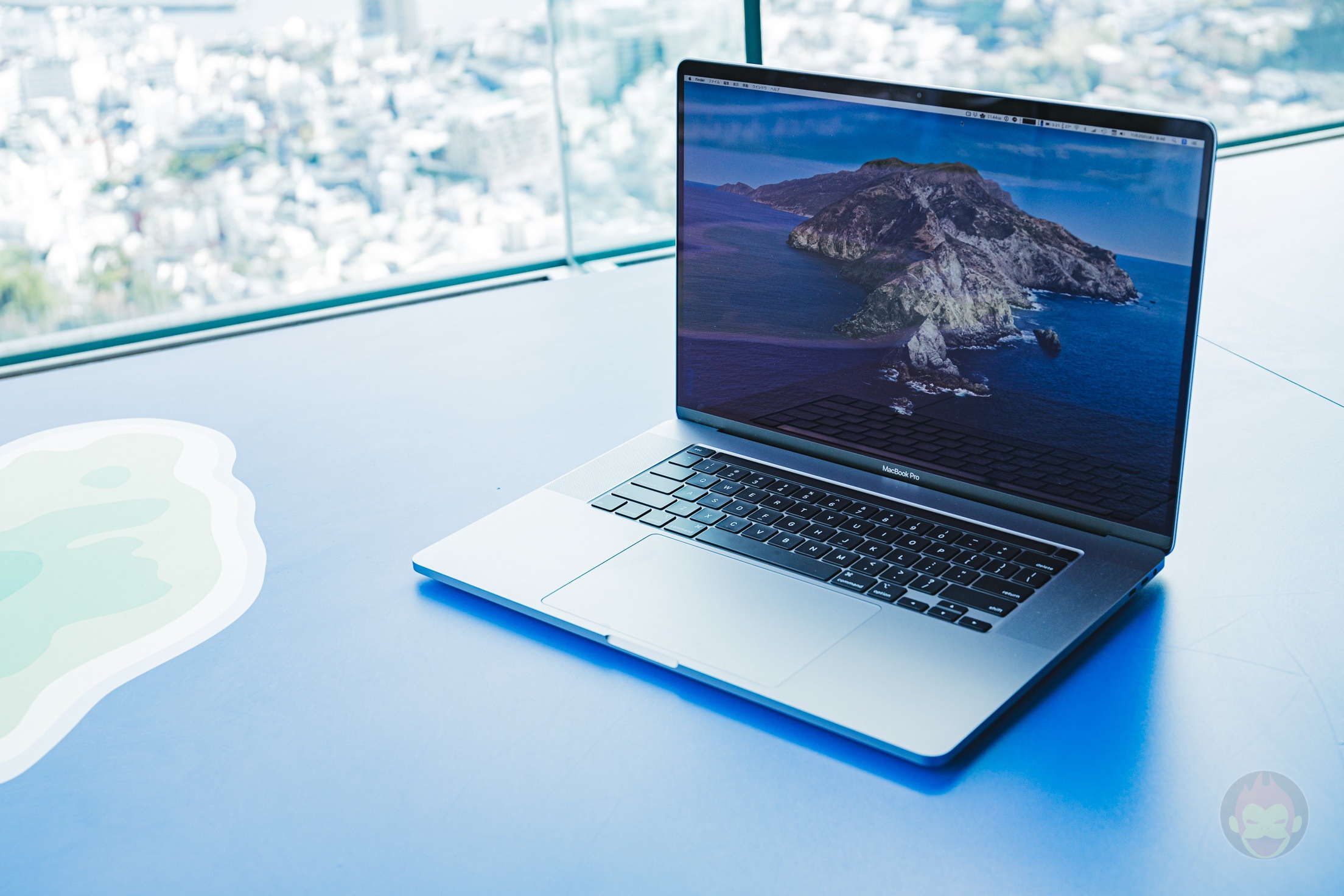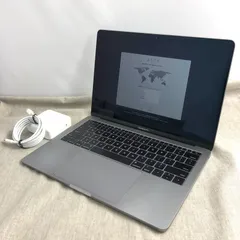18日まで 294)MacBook Pro 13インチ 2019 Core i7
(税込) 送料込み
商品の説明
294) Apple MacBook Pro 13インチ 2019 Core i7 2.8GHz/RAM 16GB/SSD256GB(139294)
外観は多少の擦れ・小キズ・がございます品です。
パームレスト部に一部薄っすらと色褪せがございます。
キーボードは一部に擦れやテカリがございます。US配列キーボードです。
初期化済みでOSは最新版のMac OS 13.5.2 Ventura です。
動作は快調で、現状特に気になる点はございません。正常に使用できます。
動作確認のため下記の情報で初期化後に一度セットアップしております。
到着後、電源を入れればすぐにお使いいただける状態です。
ユーザー名:USER
パスワード:1234
バッテリーの状態表示は「正常」で充放電回数 146回、完全充電時の容量は4470mAhです。
出品掲載時の情報となりますので多少の変更が出る可能性がございます。
バッテリーにつきましては消耗部品となりますので保証対象外とさせていただいております。
予めご了承ください。
出品物は本体と純正61w ACアダプター、ケーブルです。
商品到着後3日間を初期不良期間として対応させて頂きます。
底面に一箇所セキュリティシールを貼っております。剥がした場合は保証対応出来ませんので、動作確認が終わるまで剥がさないようにご注意ください。
【商品スペック】
■メーカー:Apple
■商品名:MacBook Pro
■モニター:Retina 13.3 インチ (2560x1600)
■OS:Mac OS 13.5.2 Ventura
■CPU:Core i7 2.8GHz
■SSD:フラッシュストレージ 256GB
■メモリ:16GB
■グラフィック:Intel Iris Plus Graphics 655
■キーボード : 英語(US)配列
■カラー:スペースグレイ
*ご希望があれば下記のOfficeソフトをインストールして出荷させて頂きます。
LibreOffice(リブレオフィス)
Microsoft Office と互換性のあるオフィスソフトです。
Word/Excel/Powerpoint/Accessファイルを互換使用可能です。商品の情報
| カテゴリー | スマホ・タブレット・パソコン > ノートPC > MacBook本体 |
|---|---|
| ブランド | アップル |
| 商品の状態 | やや傷や汚れあり |

18日まで 294)MacBook Pro 13インチ 2019 Core i7-

大きな取引 294)MacBook 18日まで Pro i7 Core 2019 13インチ MacBook

18日まで 294)MacBook Pro 13インチ 2019 Core i7-uwasnet.org

18日まで 294)MacBook Pro 13インチ 2019 Core i7-uwasnet.org

18日まで 294)MacBook Pro 13インチ 2019 Core i7-uwasnet.org

18日まで 294)MacBook Pro 13インチ 2019 Core i7-uwasnet.org

18日まで 294)MacBook Pro 13インチ 2019 Core i7-uwasnet.org

Amazon.com: Apple Mid 2019 MacBook Pro Touch Bar with 2.8GHz Intel

Mid 2019 Apple MacBook Pro Touch Bar with 2.8 GHz Intel Core i7 (13 in, 16GB RAM, 1TB SSD) Space Gray (Renewed)

18日まで 294)MacBook Pro 13インチ 2019 Core i7-

18日まで 294)MacBook Pro 13インチ 2019 Core i7-uwasnet.org

Mid 2019 Apple MacBook Pro Touch Bar with 2.8GHz Intel Core i7 (13 inch, 16GB RAM, 256GB SSD) Space Gray (Renewed)

18日まで 294)MacBook Pro 13インチ 2019 Core i7-

Mid 2019 Apple MacBook Pro Touch Bar with 2.8 GHz Intel Core i7

18日まで 294)MacBook Pro 13インチ 2019 Core i7-

Amazon.com: Mid 2019 Apple MacBook Pro Touch Bar with 2.8 GHz

Amazon.com: Apple 2019 MacBook Pro with 1.7GHz Intel Core i7 (13

13.3インチMacBook Pro 2.8GHzクアッドコアIntel Core i7 Retina

Apple MacBook Pro 13.3 inches with Touch Bar MV962LL/A 2019 - Intel Core i7 2.8GHz, 16GB RAM, 512GB SSD, macOS Catalina - Space Gray (Renewed)

18日まで 294)MacBook Pro 13インチ 2019 Core i7-

Amazon.com: Apple 2019 MacBook Pro with 1.7GHz Intel Core i7 (13

Apple Mid 2019 MacBook Pro Touch Bar with 2.8GHz Intel Core i7 (13 inch, 16GB RAM, 512GB SSD) Silver (Renewed)

18日まで 294)MacBook Pro 13インチ 2019 Core i7-

2024年最新】microsoft office 2019 macの人気アイテム - メルカリ

Apple 2019 MacBook Pro with 2.8GHz Intel Core i7 (13-inch, 8GB

18日まで 294)MacBook Pro 13インチ 2019 Core i7-

Amazon.com: Mid 2019 Apple MacBook Pro Touch Bar with 2.8GHz Intel

低価格の MacBook Apple MacBook Apple 16-inch Pro MacBook Pro Buy

18日まで 294)MacBook Pro 13インチ 2019 Core i7-

Mid 2019 Apple MacBook Pro Touch Bar with 2.8 GHz Intel Core i7 (13 in, 16GB RAM, 1TB SSD) Space Gray (Renewed)

18日まで 294)MacBook Pro 13インチ 2019 Core i7-uwasnet.org

2024年最新】macbook pro 16gb 英語の人気アイテム - メルカリ

18日まで 294)MacBook Pro 13インチ 2019 Core i7-

MacBookAir13インチ2019年256GB+Acc+office2019-

APPLE MacBookPro 13インチ 傷無し SSD1TB - ノートPC

Amazon.com: Apple 2019 MacBook Pro with 1.7GHz Intel Core i7 (13

在庫 APPLE MacBook Air M1 8GB/256GB スペースグレイ - PC/タブレット

誠実】 【美品♪】MacBook Pro 2013 i7(4850HQ)/16/256 | www

厳選した中古パソコン、中古PCのクオリット Apple MacBook Pro 13

厳選した中古パソコン、中古PCのクオリット Apple MacBook Pro 13










商品の情報
メルカリ安心への取り組み
お金は事務局に支払われ、評価後に振り込まれます
出品者
スピード発送
この出品者は平均24時間以内に発送しています














